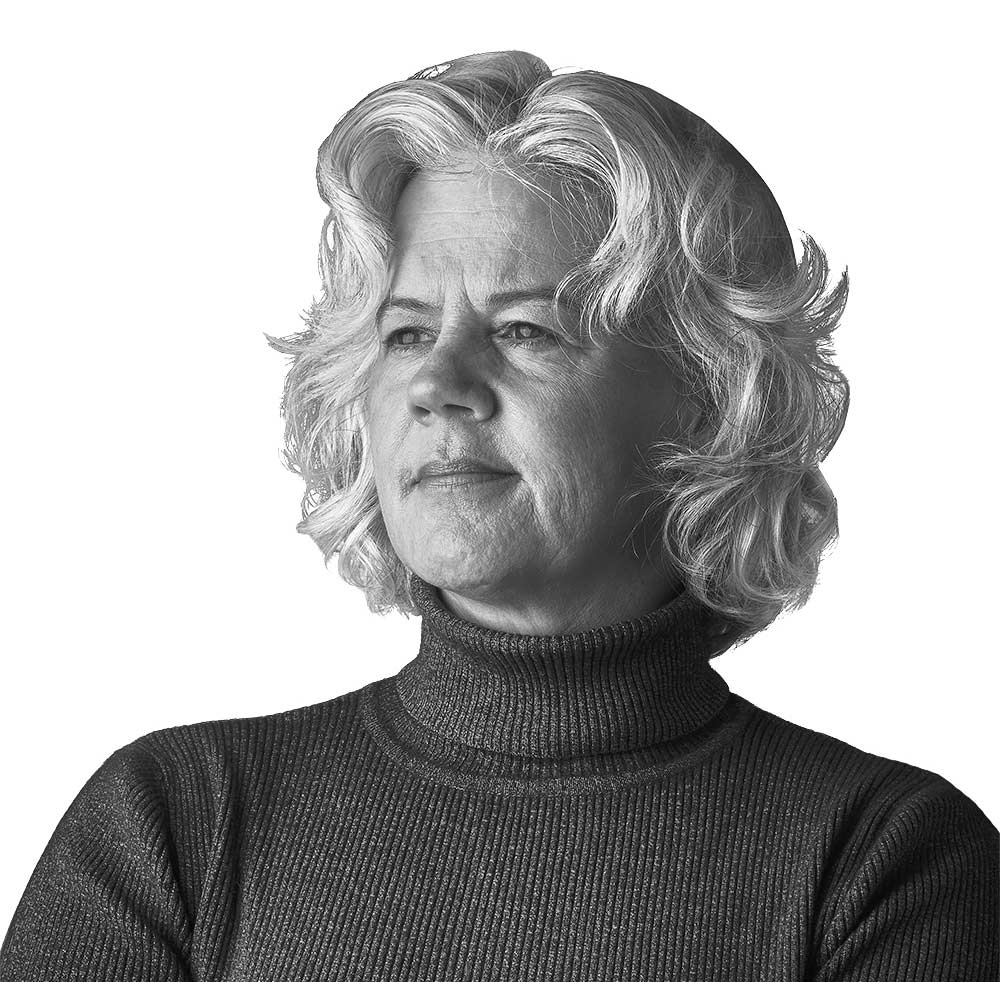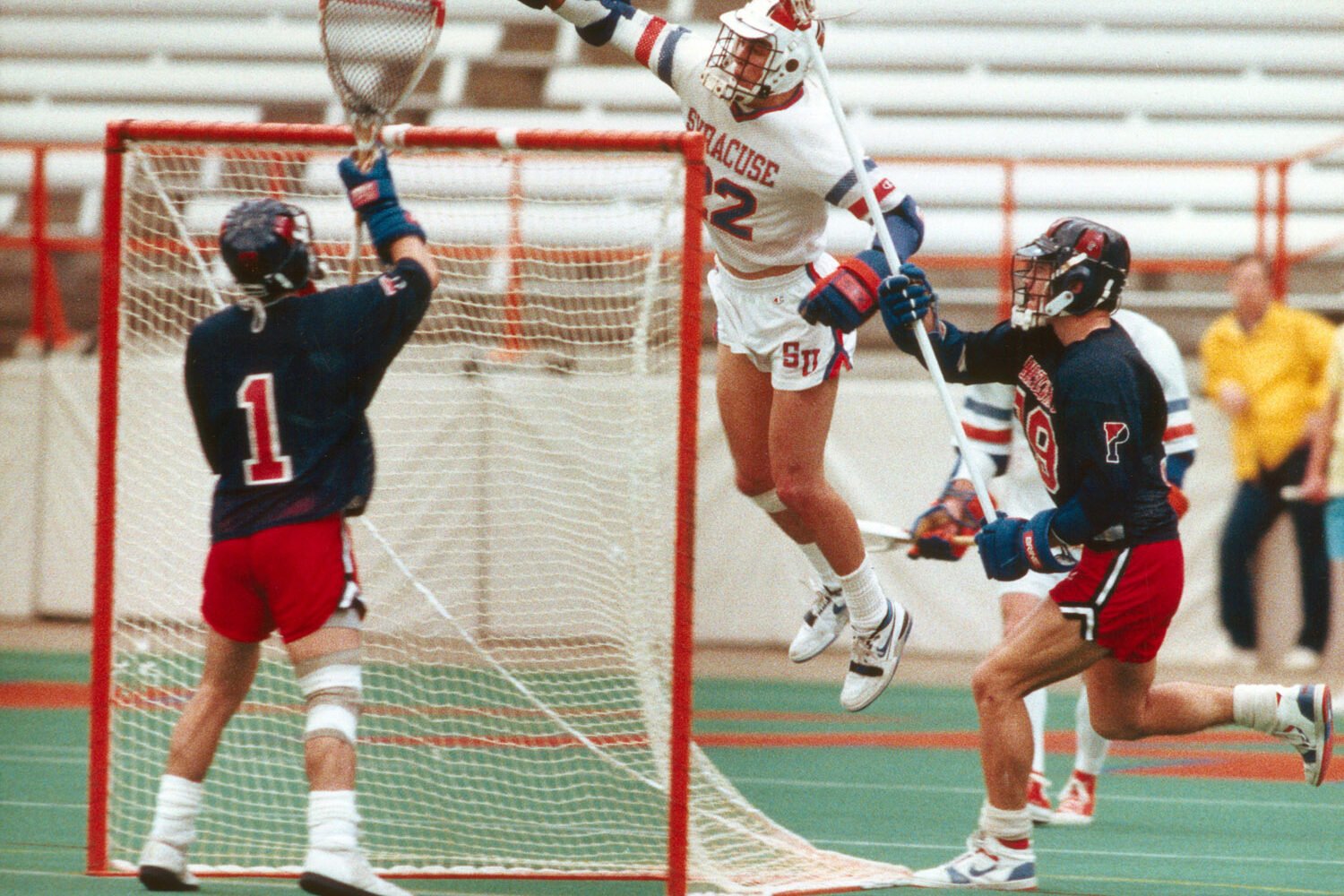Roanoke-based journalist Beth Macy is one of the best-known chroniclers of America’s opioid epidemic—first through her 2018 book, Dopesick, then with its adaptation into a Hulu TV series last fall. Macy’s new book, Raising Lazarus, tackles the issue of how to treat the epidemic, making a passionate case for seeing addiction not as a moral weakness or a criminal problem but as an illness that’s treatable with medications like methadone and buprenorphine. The book comes at a crucial moment: This year, funds from blockbuster opioid-related legal settlements are beginning to flow to local governments, which will have to decide how to use the money. Many will likely stay the course—attempting to incarcerate the problem away—but Raising Lazarus provides an alternative road map for more compassionate and effective ways to use those funds.
We spoke with Macy by phone—about the opioid crisis but also about her precarious upbringing in small-town Ohio, her efforts to tell underdog stories, and her alarm at the decline of the news business, which she watched firsthand as a reporter for the Roanoke Times from 1989 to 2014. While we talked, she roamed her neighborhood with her dog, Mavis. When asked whether she has thought of leaving Roanoke, she said no. If she’d worked at a big-city paper instead of the Roanoke Times, she thinks the stories in her books probably wouldn’t have been told.
You’ve spent many years writing about Americans who are struggling. What draws you to these stories?
I think writing about outsiders and underdogs comes from my own experience of having been one. I grew up in a small town in Ohio—Urbana. I grew up really poor; I’m the first person in my family to go to college. So I’m always compelled by the story of the person who wasn’t handed everything, especially when they are victims of these greed-controlled systems, like globalization. My first book, Factory Man, grew out of what happened when all the jobs went away—this happened in a lot of small towns, including my own. Back in the ’90s, then in the aughts, the press never told the story of globalization from the point of view of the people who lost their jobs—everyone was covering it from the CEOs’ and stockholders’ point of view. But a lot of these people were really struggling and the government did very, very little for them.
Is that something you experienced growing up?
I was born in 1964, so globalization didn’t happen until later. When I was growing up, there were jobs, but the economy was still really tough if you were poor. My dad was kind of the town drunk, and by the time I was a teenager, he was kind of nonfunctioning. But my mom kept a roof over our head, either from working in the local factory, which made airplane lights, or she would pick up under-the-table jobs, like waitressing or babysitting, just like the people I wrote about later did. It took me a while into my career to figure out that those were the stories I told the best. And they scratched this itch—they helped me write about my own story in an indirect way.
But they were also really socially relevant stories, and no one was telling them, because everybody I worked with in newsrooms had grown up—I don’t want to say with everything handed to them, but almost everyone’s parents had gone to college. They just saw things through a different lens. I did not grow up middle class, and I’ve always seen those stories better than people who did.
I’m curious when you realized that opioids were a story you wanted to tell.
It was 2012, and I was in the process of finishing Factory Man. At the end of reporting, I started hearing that crime was getting really bad and a lot of it was drug-related. Everybody’s, like, breaking into houses for Xanax and opioids. I filed that away. And then, lo and behold, I go back to work at the Roanoke Times before the book comes out and I get assigned to write what becomes a three-part series on these two rich kids who go to private school, and one is about to go to federal prison for his role in selling the heroin that led to his former classmate’s death. So I embedded with these two families—the kid himself and the mom of the kid who died. And readers, like, spit the coffee out that they were drinking. They’re like, “What? Wealthy white kids are doing heroin?”
So in 2013, I’m meeting with my agent and my editor. They’re getting ready to publish Factory Man, and they’re like, “What do you want to do next?” And I said, “I think we should look at this heroin issue.” But they’re in New York City, so they’re like, what? I couldn’t convince the people in New York that this should be my next book, because they thought it was a trend and Roanoke was late getting it. Because they knew there had been a heroin epidemic in the ’90s in New York.
So what did you do?
I hadn’t published a book yet—I was just, like, Joe Blow from the Roanoke Times. I didn’t have the guts to stand up for my idea. So I found another book to write, a racial-history book called Truevine. But while I was working on that, Sam Quinones published [his 2015 investigation of the opioid epidemic] Dreamland and all this research was starting to come out about deaths of despair and our life expectancy going down largely due to opioids. So when I finished Truevine, I was able to go back and say, “See? I really think this is an important issue.”
Dopesick was obviously very successful. What was it like seeing it become a TV show?
My first two books were optioned, but only about 10 percent of books that get optioned actually get made. Almost every book that’s decent gets optioned, and it’s a little bit of money, and then you just pray they’ll make it. With the first two, there have been scripts written and movie stars attached, but they still haven’t been greenlighted. But with Dopesick, there was a bidding war for it. I went out to LA, I met with a bunch of people. The book was so personal to me, and I had been so attached—especially to Tess Henry, who was the main protagonist of the last half of the book—that I just wanted to make sure they didn’t screw it up.
What would screwing it up look like?
My goals going in were, one, I didn’t want them to stereotype Appalachia, making Appalachians look dumb or lazy. And, two, I wanted a really clear message about medication-assisted treatment: methadone and Suboxone [which are used to treat opioid addiction]. It sounds a little wonky at first—you’re like, “We’re going to get in the weeds of this medicine?” But it’s a really important thing for people to understand. Because it’s still stigmatized—doctors still don’t want to prescribe it. A lot of people think it’s still just treating a drug addiction with another drug. And it’s not—it’s got to be seen as medicine.
What should skeptics understand about medication-assisted treatment?
With medication-assisted treatment, you are 60 to 80 percent less likely to die.
I do think some people just culturally think medication-assisted treatment is wrong. But when you see an A-list actor like Michael Keaton [who plays a doctor in Dopesick] being discriminated against because he’s on methadone and then Suboxone—I mean, that’s really important. Then you see him get better. And people do get better.
With so many opioid-crisis books and shows and documentaries, do you worry that audiences will get tired of the subject?
I think there’s fatigue around addiction because it’s a really hard issue. We now have a third of American families struggling with it, and there’s still so much shame and stigma that they don’t want to talk about it. But [Dopesick creator and showrunner Danny Strong] knows how to make something really entertaining. He wanted to make the show sort of a procedural drama, a crime-investigation story. And that makes other elements of the story palatable in some ways, because you have these good guys who are fighting to put the bad guys away—which, by the way, really happened. It’s something that people can watch and be entertained by, but you sneak the learning into it as well.
You wouldn’t believe the hundreds of people who reached out to us to say, “I watched your show, and for the first time in three years I called my addicted kid—who I was just disgusted with—because I finally understood that it wasn’t just him being a bad person.” So that’s the thing about prestige TV. My book [Dopesick] did really well. It was a bestseller; I was very pleased with it. It sold better than any of my other books. But millions of people watched the Hulu show—like, way more than read the book. So that is an opportunity.
Dopesick focused on the anatomy of the opioid crisis itself, but your new book is more about how to treat that crisis. What’s the situation right now?
Addiction is a medical condition that took 108,000 people last year. And most doctors don’t want to treat it, because they don’t want “those people” in their waiting room—you know, difficult patients. If you’re a doctor, you can prescribe OxyContin. But you have to do a special training and get a special DEA license to prescribe the treatment for an OxyContin addiction. Only 8 percent of physicians have bothered to do it.
The war on drugs still drives everything. We still are much more likely to incarcerate a person with this medical illness than we are to treat them as a person with a treatable medical problem. And treating them is not only the kind thing to do—it’s also way more cost-efficient.
You make the point that effective treatment is often tough to access, though—there are lots of legal, political, financial, and moral barriers. What can communities do to make this easier?
What I really hope communities will take from my book is that you can make change. The people I chose to profile were innovating [ways to access] treatment—people like the sheriff in Fairfax who is doing medication-assisted treatment in the jail, which is still very unusual. The book starts with a nurse practitioner [meeting a patient] in a McDonald’s parking lot in a dying furniture town. And it’s kind of ridiculous that this is cutting-edge care. We’re so bad at offering care to these folks that we leave it to volunteers who are meeting people in parking lots and in their tents. And, I mean, this is America. I just wanted it to be really in-your-face, because that’s the way it is.
What do you think you’ll work on next?
I want to write about the decimation of the media, and also my own story—I was a paper girl in my town, and everybody read the same news and agreed on the same facts. But at my mother’s deathbed, it was the same time they were tallying the votes after the 2020 election, and my sister and I had this big political fight as our mother was breathing her last breaths. So I want to say, “How did this happen? Why, as a nation, can’t we have Thanksgiving dinner together anymore?” It’s kind of a memoir, but it’s also an investigation, because the press doesn’t report on its own demise very well.



















